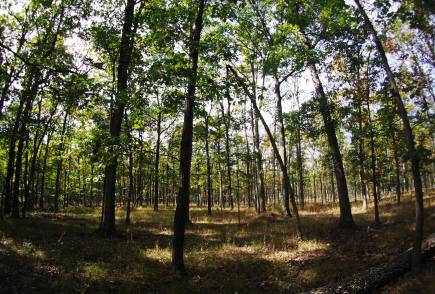 (1/26) Last month the Land Conservancy of Adams County finalized an agreement with Highland Township resident Allen Knouse to preserve his 77.5-acre property from development.
(1/26) Last month the Land Conservancy of Adams County finalized an agreement with Highland Township resident Allen Knouse to preserve his 77.5-acre property from development.
"I’m the third generation of my family to own this land," Knouse said. "My grandparents were tenant farmers on this land for five years and then they bought the whole farm. They built the home that I live in today in 1922. I still own 77 acres of what was the original farm—most of my land today is on a hill and covered with trees."
Knouse protected his land from development through the use of a conservation easement, a legal document describing the amount and kind of development a landowner chooses to allow on the land, both now and in the future. The easement is recorded with the property’s deed and limits the development rights of future landowners in perpetuity.
"Allen Knouse's property is in the Marsh Creek watershed, which is has long been a Land Conservancy priority area for preservation," said Land Conservancy Land Preservation Coordinator Sarah Kipp, who worked with Knouse to finalize his preservation project. "Being large and entirely forested, this land provides important ecosystem services such as carbon sequestration,
water purification, and wildlife habitat."
While some landowners receive financial compensation in exchange for limiting the development rights to their land, Knouse chose to donate his conservation easement, meaning he received no financial compensation, though for many landowners, donating an easement can result in significant tax savings.
The Land Conservancy of Adams County is a fully accredited, member-supported nonprofit land trust with the mission of preserving the rural lands and character of Adams County. The Land Conservancy partners with local landowners to preserve farmland, woodland, and historic and recreational spaces from development. Since its founding in 1995, the Land Conservancy has worked
with Adams County landowners to preserve nearly 10,000 acres of rural land. For more information about the Land Conservancy, visit LCACnet.org.